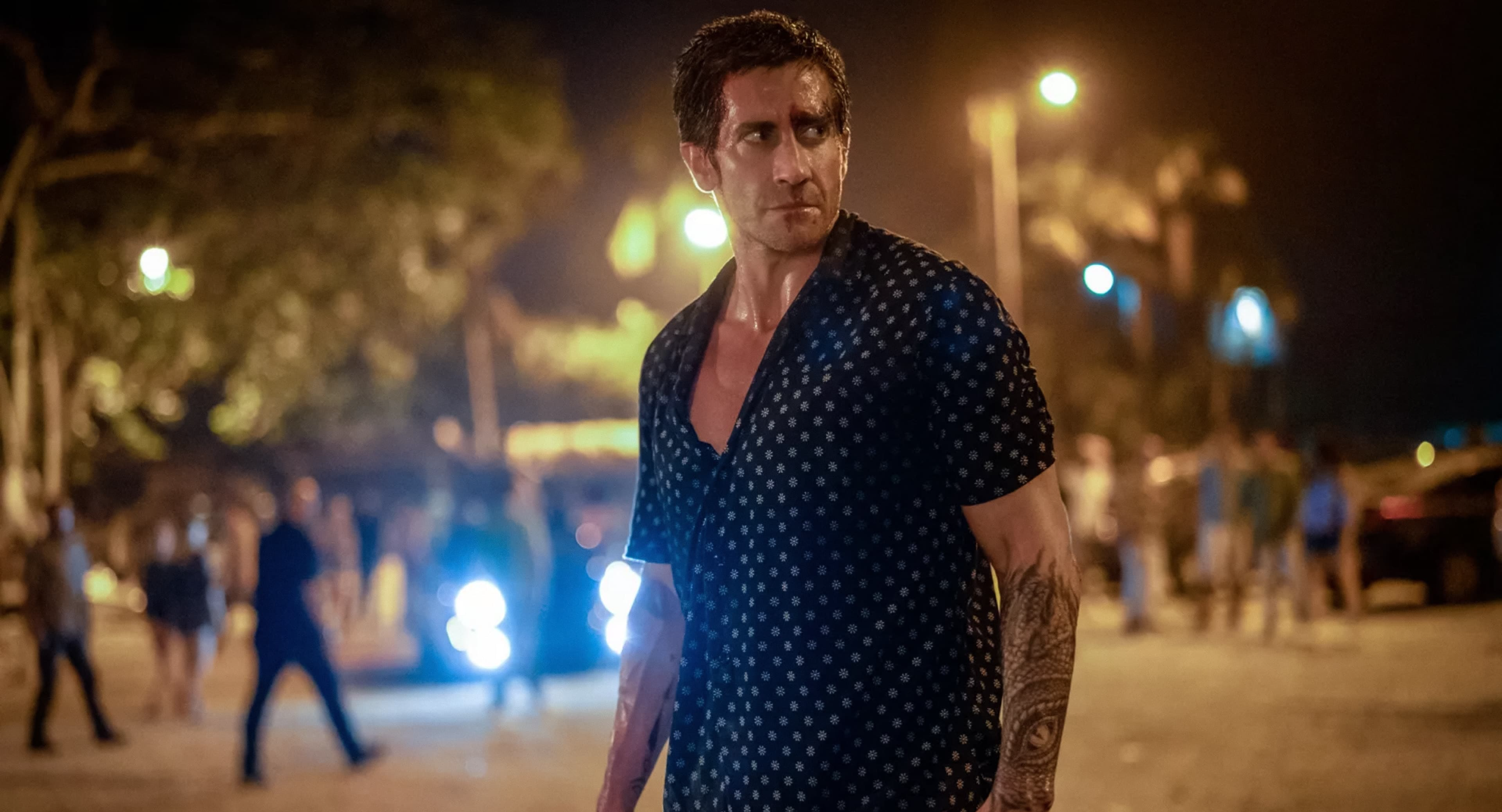Road House – Film Review
Published March 21, 2024

Doug Liman‘s reimagining of the cult classic action film Road House ambitiously attempts to infuse modern sensibilities into a nearly three-decade-old narrative. Leveraging the magnetic charm of Jake Gyllenhaal and tapping into the current appeal of UFC with Conor McGregor’s feature film debut, this rendition walks a fine line between homage and reinvention. While it showcases a potent mix of visceral combat and character-driven drama, not all aspects land with the finesse perhaps intended, rendering the final product a somewhat uneven but entertaining watch.
Road House situates itself in the sultry backdrop of the Florida Keys, a departure from the more landlocked locale of its predecessor. Gyllenhaal stars as Elwood Dalton, a former UFC middleweight fighter with a haunted past, seeking solace and anonymity as a bouncer at a local roadhouse. The choice of setting lends the film a distinctive, almost languid atmosphere that contrasts sharply with the explosive violence that unfolds. This choice, while intriguing, sometimes clashes with the narrative’s demand for gritty realism, offering an initial hint of the film’s sporadic tonal inconsistencies.
Conor McGregor’s cinematic outing as Knox, a character seemingly crafted to parallel his real-life bravado and fighting prowess, adds a layer of meta-textual enjoyment. McGregor’s performance, while occasionally stiff, displays surprising moments of depth, particularly in quieter, more introspective scenes opposite Gyllenhaal. The dynamic between Elwood and Knox provides much of the film’s emotional and physical conflict, with McGregor’s debut offering a commendable, if somewhat unpolished, contribution to the film’s ensemble.
Daniela Melchior‘s Ellie brings a necessary and refreshing depth to the otherwise male-dominated narrative. Melchior’s portrayal, brimming with resilience and complexity, stands out as one of the film’s more grounded elements. Her interactions with Gyllenhaal’s Elwood offer a compelling exploration of trauma, redemption, and connection, although the film sometimes underserves their relationship, missing opportunities to delve deeper.
Directed by Liman with his characteristic kinetic energy, the action sequences are undoubtedly Road House‘s highlight. Choreographed with brutal precision, these moments hark back to the visceral, no-holds-barred style of the original film while elevating them with modern techniques and a sharper aesthetic. Particularly commendable is a tightly shot, claustrophobic confrontation in the confines of the roadhouse, which serves as a testament to Liman’s ability to balance chaos with coherence.
However, where the film begins to falter is in its screenplay. Written by Anthony Bagarozzi and Chuck Mondry, the script ambitiously weaves themes of redemption, community, and corruption but occasionally succumbs to cliches and underdeveloped plotlines. The Florida Keys, ripe with potential for a fresh take on the roadhouse concept, sometimes feels like a backdrop rather than an integral part of the story, leaving its colorful locales and potential unique cultural tensions underexplored.
Additionally, while Gyllenhaal delivers a compelling performance, balancing the physicality of his role with emotional nuance, his character’s journey sometimes feels truncated. The film rushes through pivotal moments of growth and introspection, sacrificing character development for action, which, while exhilarating, leaves the narrative feeling slightly hollow at its core.
The film’s visual and auditory aspects deserve mention. Cinematography by Henry Braham captures the steamy, unpredictable essence of the Florida Keys, while the soundtrack, a blend of modern tracks and nostalgic nods, effectively underscores the film’s multifaceted tone. Yet, these technical strengths can only do so much to elevate a narrative that struggles with pacing and depth.
Joel Silver’s production expertise, recognizable from the original Road House and numerous action classics, ensures that the film never veers too far into the implausible. His touch is evident in the film’s sleek production values and the seamless integration of action and narrative. Yet, even his seasoned oversight can’t entirely mask the film’s uneven pacing and occasionally disjointed storytelling.
In conclusion, Doug Liman’s Road House stands as a curious experiment in genre reinvention, boasting impressive action sequences, a compelling cast, and moments of genuine emotional resonance. Jake Gyllenhaal and Daniela Melchior, in particular, deliver performances that elevate the material, with Conor McGregor’s debut adding an interesting, albeit unpolished, dynamic. The film’s atmospheric setting and technical prowess are highlights, even as the narrative struggles with depth and coherence.
As a reimagining of a cult classic, Road House walks a tightrope between honoring its source material and carving out a new identity. While it doesn’t always succeed, its ambitions and moments of brilliance make it a worthwhile watch for fans of the genre.
